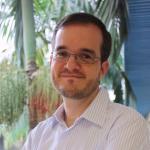In the last month we had two important conferences on the history of economics that I was happy to attend. The first was the annual meeting of the European Society for the History of Economic Thought (ESHET) that took place in Rome in May 14-16, and had as its theme “Great Controversies in Economics” (but, as usual, it is a general conference that accepts works in any topics on the history of economics and economic methodology). This event gathered a big number of attendees, circa 300 people, and had some interesting plenary sessions: we had Roger Backhouse (University of Birmingham, UK) and Mauro Boianovsky (University of Brasília, Brazil), winners of the best book award last year with their “Transforming Modern Macroeconomics. Exploring Disequilibrium microfoundations, 1956-2003” published in 2013, providing an overview of the concept of secular stagnation in their Jérôme-Adolphe Blanqui Lecture titled “Secular Stagnation: the History of a Macroeconomic Heresy”. We also had a keynote lecture by Murray Milgate (Queens’ College, University of Cambridge, UK), taking up the conference theme in his “The Winner’s Curse: Lessons from Some Controversies in Economic Thought”. Finally, we had Diane Coyle’s plenary session on “Reforming the Economics Curriculum: Insights from the INET-CORE Project” and the online introductory book that is already available for free. Additionally, it was nice to see Anthony M. C. Waterman (Professor Emeritus of Economics, University of Manitoba and Fellow, St John’s College, Winnipeg, Canada), ESHET’s Honorary Member, taking part of the discussions at the conference and giving a speech at the ESHET General Assembly.
As usual, in conferences like this big means varied, and in many dimensions: themes, approaches, discussions in sessions, etc. What I found interesting was to see sessions on themes and approaches that are not the most popular in the field, such as quantitative (bibliometric) approaches to the history of economics, the economics and the media in historical perspective (in which our fellow blogger Tiago Mata presented his research on Friedman and Samuelson as columnists of Newsweek), history of econometrics and history of postwar economics. It was also nice to see a good group of young researchers attending the conference.
The second event was the 9th Conference on the History of Recent Economics (HISRECO) at the University of Cergy-Pontoise on May 29th, an initiative launched in 2007 by Philippe Fontaine (École normale supérieure de Cachan, France), Tiago Mata and Roger Backhouse, and this year co-organized by Yann Giraud (University of Cergy-Pontoise, France), Philippe and Roger. In this one-day workshop a very interesting group of young researchers presented their work on varied and interesting topics: on Musgrave’s definition of public goods and his close interaction with Paul Samuelson (by Maxime Desmarais-Tremblay), on the birth and cold war history of Russian mathematical economics (by Adam Leeds), on the institutional developments of the social sciences and economics in France in the 1940s and the role of the Rockefeller Foundation (by Serge Benest), on the history of the close association between OECD and the Club of Rome and the growth paradigm in the 1970s (by Matthias Schmelzer), and on the role of models and facts in the history of DSGE macroeconomics (by myself). A very nice aspect of the HISRECO Conference was the interdisciplinary approach to the history of economics, with an interesting discussion among historians of economics, anthropologists and historians.
It is indeed rewarding to see historians of economics increasingly engaging in new research topics and approaches that can shed new light on the history of modern economics and to see a group of young scholars coming to the field.



